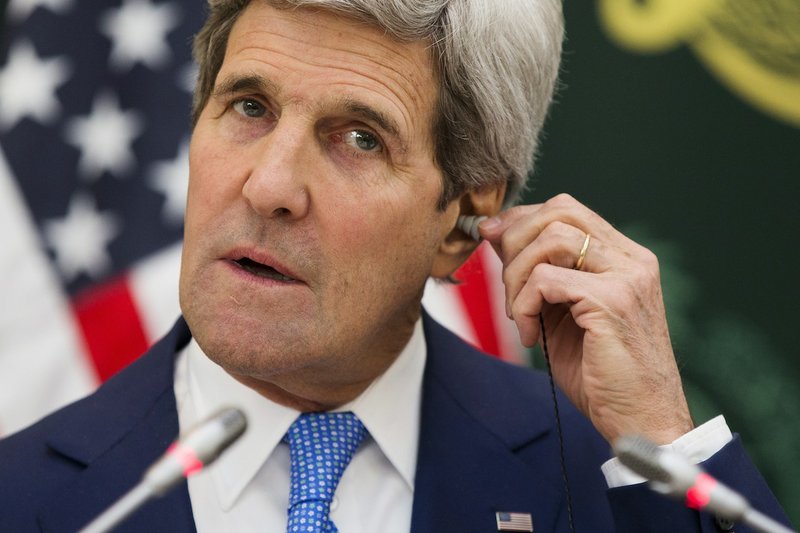RIYADH, Saudi Arabia — U.S. Secretary of State John Kerry sought Thursday to ease Gulf Arab concerns about an emerging nuclear deal with Iran and vowed that any agreement reached would not reduce America's commitment to combating Tehran's destabilizing actions in the Middle East and beyond.
Speaking at a news conference in Riyadh with Saudi Foreign Minister Prince Saud al-Faisal, Kerry said a nuclear agreement would not be part of a "grand bargain" with Iran and that the United States would continue to fully support its partners in the Gulf against Iranian interference.
"We are not seeking a grand bargain," Kerry said after meeting with the new Saudi monarch, King Salman, and the foreign ministers of the of the Gulf Cooperation Council: Bahrain, Kuwait, Oman, Qatar, Saudi Arabia and the United Arab Emirates, all of which are Sunni-led states unnerved by Shiite Iran's suspected pursuit of nuclear weapons and its increasing assertiveness throughout the region.
"Nothing will be different the day after this agreement, if we were to reach one, with respect to all the other issues in this region," Kerry said.
"Even as we engage in these discussions with Iran around its nuclear program," the secretary said, "we will not take our eyes off Iran's other destabilizing actions."
Of efforts to forge a framework agreement with Iran on its nuclear program by the end of March, Kerry said, "We have made progress, but there do remain serious gaps that need to be resolved."
"It may be that Iran cannot say yes to the type of deal that provides the assurances that the international community requires."
He alluded to the next round of talks beginning March 15, and said "we expect soon thereafter to know whether Iran will in fact be able to make the tough decision."
Saud said he appreciated Kerry's pledge that a nuclear deal "would not come at the expense of forgetting everything else that Iran does."
Read Friday's Arkansas Democrat-Gazette for full details.
